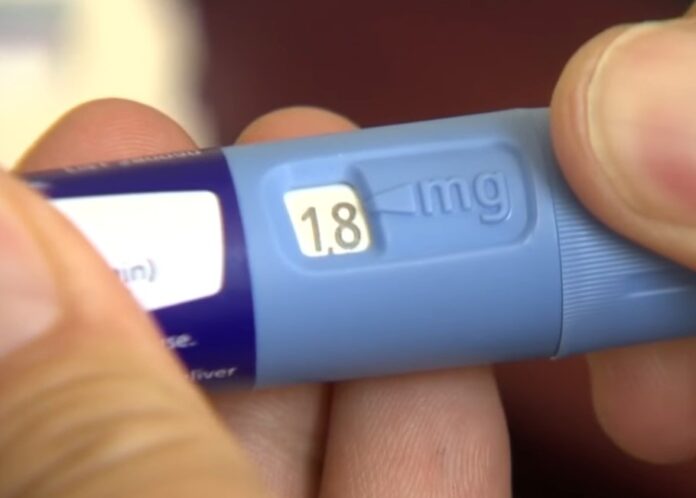The topic of weight loss injections has certainly been generating a lot of buzz lately. I can understand the appeal – the idea of a quick and easy solution to something that so many people struggle with is undeniably tempting. But with things that seem almost too good to be true, there’s often more going on beneath the surface.
Let’s take a closer look, shall we? Weight loss injections, while they may offer some promise, come with their fair share of complexities and potential risks. The science behind them is still relatively new and evolving, and there are valid concerns about long-term safety and efficacy that need to be carefully considered.
Rather than jumping to conclusions, I think it’s important that we approach this topic with an open mind, but also with a healthy dose of skepticism. These kinds of solutions can be a double-edged sword – they may provide some short-term benefits, but they don’t necessarily address the underlying drivers of weight gain. And they could potentially have unintended consequences that we’re not yet fully aware of. There’s a lot more to it, so let’s start the discussion without further delay.
What Are Weight Loss Injections?
Weight loss injections usually involve a hormone called GLP-1 (glucagon-like peptide-1). Semaglutide and liraglutide are two common names you might hear. Originally developed to treat diabetes, they’ve shown promise in helping with weight loss too.
How Do They Work?
GLP-1 helps regulate your appetite – it basically makes you feel full sooner and keeps you feeling satisfied for longer.
So when you give it a little boost through an injection, you end up eating less without even really trying. Sounds almost too good to be true, doesn’t it?
But the science is there, and a lot of folks have had some pretty impressive results. Of course, it’s not a magic bullet, but it could be that extra nudge in the right direction if you’re looking to shed a few pounds.
Benefits of Weight Loss Injections
- Appetite Control: Helps in reducing the urge to snack.
- Steady Weight Loss: Promotes gradual and sustainable weight loss.
- Improved Blood Sugar Levels: Originally used for diabetes, it can help maintain blood sugar levels.
Potential Side Effects
- Nausea: Common especially in the initial weeks.
- Diarrhea or Constipation: Digestive issues can occur.
- Potential for Serious Conditions: Risk of thyroid tumors and pancreatitis.
What Do Studies Say?
Researchers have conducted various studies to examine the effectiveness and safety of these injections. Let’s look at a few key findings.
Clinical Trials and Results
Several clinical trials have been conducted, with promising results:
- STEP Trials: These studies focused on semaglutide. Participants lost around 15% of their body weight on average over 68 weeks. That’s significant!
- SCALE Trials: Liraglutide was the star here. Participants saw a 5-10% reduction in body weight, with some even reaching 15%.
Longevity of Results
I know a lot of people are worried about whether they’ll be able to keep the weight off for good, even if they see some success with the injections. The research actually shows that sticking with the treatment is really important – if you stop using the injections, there’s a good chance the weight will start creeping back on.
It’s not an easy road, but the key is being consistent and committed to the process. I get that it can feel discouraging, but try not to get too discouraged. With the right mindset and support, you’ve got a real shot at making those results last.
Personal Stories
Hearing from those who’ve tried weight loss injections can offer valuable insights. I spoke with a few folks who’ve been on this journey.
Sarah’s Experience
Sarah, a 34-year-old teacher, struggled with weight her entire life. After trying every diet imaginable, she gave weight loss injections a shot. In her words:
“The first few weeks were tough. I felt nauseous and had to really push through. But I started seeing results quickly, and it motivated me to stick with it. Over a year, I lost 45 pounds. It wasn’t easy, but it was worth it.”
Mark’s Journey
Mark, a 45-year-old office worker, had a different experience.
“I didn’t lose as much as I hoped – about 20 pounds over six months. But my blood sugar levels improved drastically. I think of the injections more as a tool, not a miracle. They helped, but I had to work on my diet and exercise too.”
The Importance of Lifestyle Changes
Weight loss injections are not a magic bullet. They should be part of a broader strategy that includes:
- Healthy Eating: Focus on whole foods, balanced meals.
- Regular Exercise: Aim for at least 150 minutes of moderate activity per week.
- Behavioral Changes: Mindful eating, stress management, and adequate sleep.
Making the Decision
Look, I know weight loss can be a real struggle. It’s tough out there, and those quick-fix injection treatments can seem really tempting. But before you go down that road, I really think it’s important to have an honest chat with your doctor.
They’ll be able to look at your full health history and work with you to figure out if those injections are actually the best approach for your specific needs and goals.
At the end of the day, your well-being is what matters most, so don’t be afraid to lean on the expertise of a medical professional. They’re there to support you, not judge you. Just have an open discussion, get their professional opinion, and then you can make the decision that feels right for you.
Questions to Ask Your Doctor
- Is it safe for me?
- What side effects might I experience?
- How long will I need to use the injections?
- What happens if I stop?
The Bottom Line
For people who are really struggling with their weight and all the health problems that can come with it, those weight loss injections might be worth looking into. They can definitely help people drop some pounds and get their blood sugar under better control.
But let’s be real – they’re not going to fix everything on their own. The best way to make lasting changes is to work closely with your doctor, make some lifestyle tweaks, and make sure you’ve got a good support system in place.
It’s not easy, but with the right approach, you can absolutely make progress and improve your health over the long haul. Keep in mind that Rome wasn’t built in a day. Baby steps in the right direction are still steps forward.












